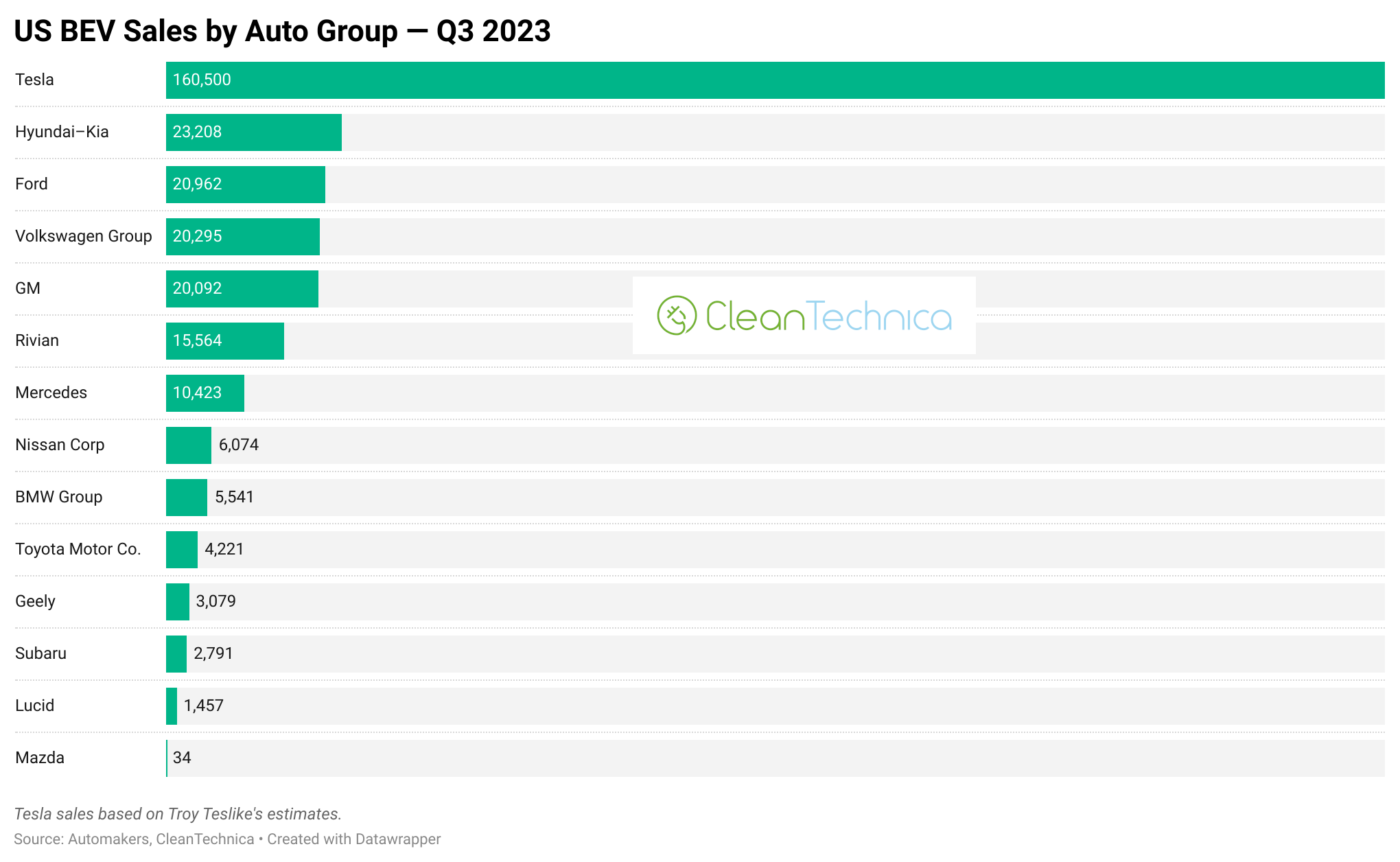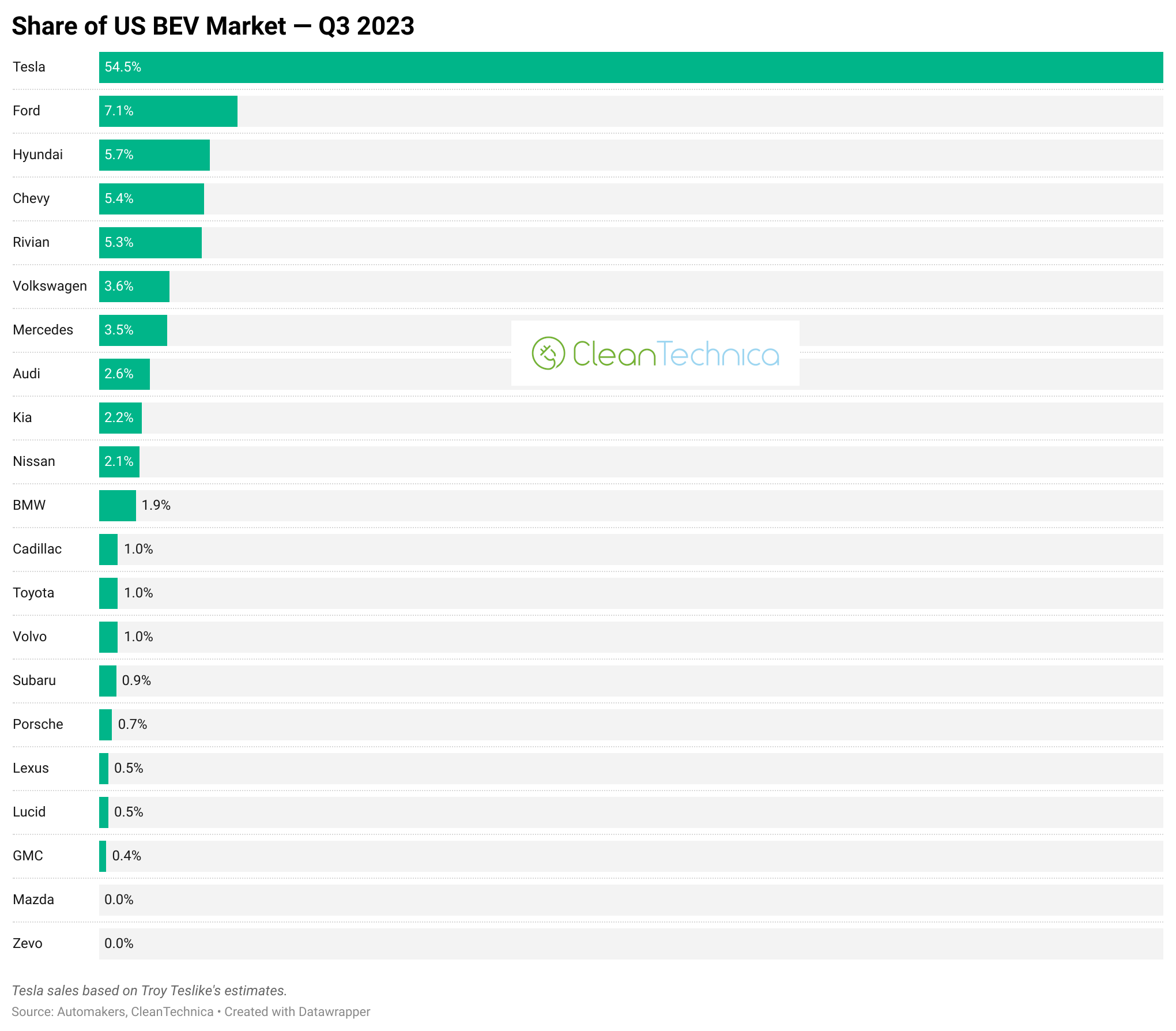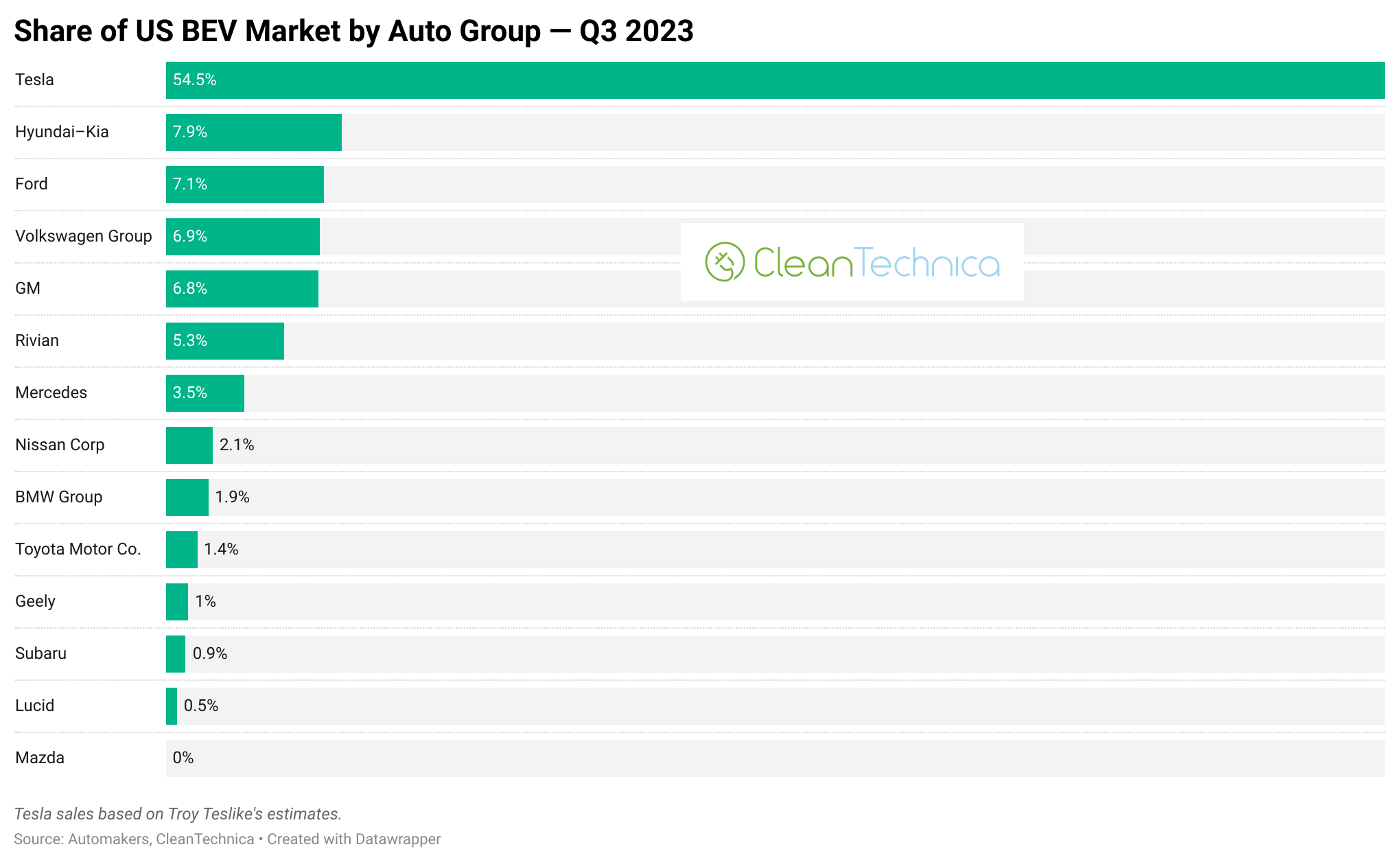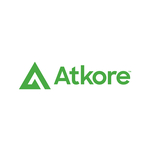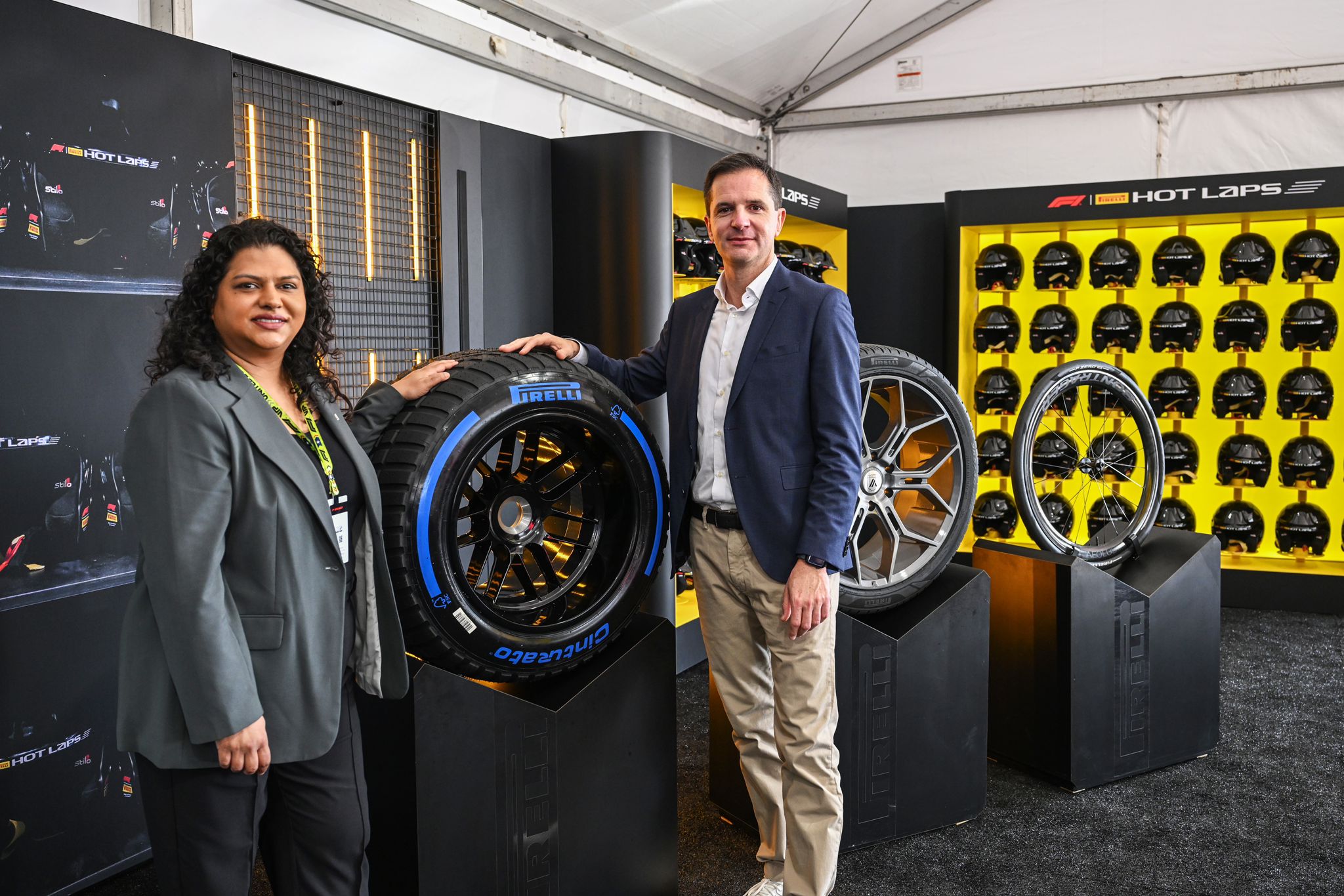Sign up for daily news updates from CleanTechnica on email. Or follow us on Google News!
It’s fun and interesting to look at which automakers lead full electric vehicle (BEV) sales in the USA, and to look at which auto brands lead the market. I’ll get into that breakdown in a moment. However, first, even more fun for me is looking at which auto brands and groups are reaching a higher percentage of their own sales being electric. So let’s start with that.
Before we get into the individual brands, note that 7.5% of US auto sales were BEV sales in the 3rd quarter of 2023. Aside from the full electric brands (Tesla, Rivian, Lucid, and Zevo), 7 auto brands had a higher BEV share than the US average.
As you can see in the chart above and in the title, Audi led the way, with 12.7% of its vehicle sales being BEV sales in the 3rd quarter. Volkswagen was just half a percentage point behind it, with 12.2% of its sales being BEVs. Mercedes (11.6%), Porsche (10.3%), Volvo (9.5%), and Cadillac (8.5%) took the next four shots, showing that it’s premium auto brands that are leading the way into an electric future in the United States.
It’s a similar story if you look at things from an overall group/corporate perspective. Volkswagen Group is king of the hill, with 12.1% of its vehicle sales being full EV, followed closely by Mercedes (11.6%) and then Geely (9.5%) a bit lower just because of its Volvo ownership.
Some of the companies that do very well in absolute terms are much more moderately place once looking at the matter from this relative, adjusted perspective. In particular, Ford, Hyundai, and Chevrolet looked very good when looking at the numbers in isolation.
But let’s jump into those absolute numbers a bit.
I’m throwing the pure-play EV startups back into the mix here. We can see again that Tesla dominates the BEV market in the US, and this is nothing new. Ford, Hyundai, Chevy, and Rivian are quite close and competitive across the next four spots — and things could flip around between them from quarter to quarter. Volkswagen, Mercedes, and Audi are a step change below them, but now we know that those mid-table brands are actually doing much better in terms of percentage of their sales being electric.
We could also talk about all of the laggards that are doing so poorly on all of these tables, but it feels like there’s no point in wasting virtual ink on those companies today.
Last but not least, though, we can jump into how the US BEV market is split on a percentage basis by auto brands and groups.
Tesla still accounts for 54.5% of the US BEV market. That has shrunk in recent quarters, though, so one can wonder if it will drop below 50% at some point in 2024 as BEV models and sales from other automakers continue to grow.
Looking just at brands, Ford comes in second place with 7.1% of the US BEV market and Hyundai comes in third with 5.7% share. If we look at it by overall auto group, those latter two are essentially flipped — Hyundai–Kia gets second place (thanks to the addition of Kia’s EV sales) at 7.9% share while Ford remains at 7.1% share to grab the bronze. Then there’s Volkswagen Group, GM, and Rivian.
What jumps out to you from these rankings? What do you expect in the last quarter of 2023 and in 2024?
Have a tip for CleanTechnica? Want to advertise? Want to suggest a guest for our CleanTech Talk podcast? Contact us here.
Our Latest EVObsession Video
I don’t like paywalls. You don’t like paywalls. Who likes paywalls? Here at CleanTechnica, we implemented a limited paywall for a while, but it always felt wrong — and it was always tough to decide what we should put behind there. In theory, your most exclusive and best content goes behind a paywall. But then fewer people read it!! So, we’ve decided to completely nix paywalls here at CleanTechnica. But…
Thank you!
CleanTechnica uses affiliate links. See our policy here.




